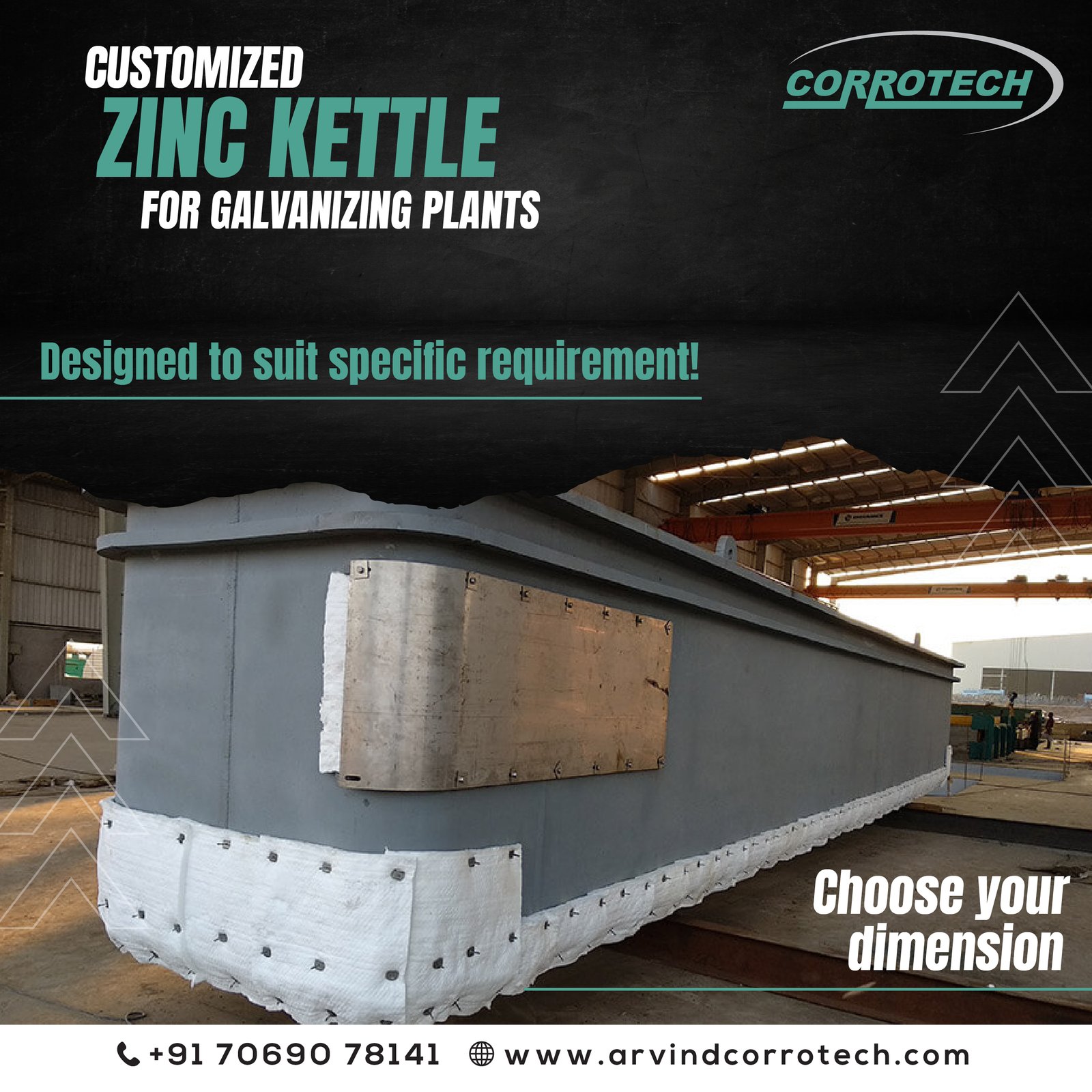Tag: galvanization plant

Galvanizing has emerged as one of the most reliable techniques to apply a coating on iron-made items. A robust zinc kettle is an essential element of this entire process. A scientifically designed zinc galvanizing plant comprising a wide range of processes for zinc coating on a wide range of products, like pipes, wires, rods, and components enables successful galvanization.
The magic of the zinc layer
The extremely thin zinc layer adds plenty of features to the coated metal, including resistance to corrosion and durability. You don’t require deep knowledge to solve this question. The durability of metal is directly proportional to its ability to resist corrosion. Since the zinc layer imparts incredible properties to the metal, it lasts up to 70-80 years. Even more than that. Zinc kettle manufacturer hold professional experience in building zinc galvanization plant ‘s machines and tools. You can raise your doubts and queries to the manufacturer.
An important question arises here, why is zinc used in zinc galvanizing plant and not any other metal? This will remain the key focus of our blog. Many people, especially students, want to learn about this mystery. In this blog, we are going to solve this vital question.
Why not copper in place of zinc?
That’s an obvious question many of you might be thinking to raise. Why not copper in place of zinc for carrying out the galvanization process and applying a coat, after all even copper doesn’t rust either. According to the experts, zinc protects steel-made items from rusting in many ways, copper can’t.
Metals that are more reactive in nature, protect metals that are comparatively less reactive by losing electrons first. According to metallurgy experts, zinc is more reactive than any kind of steel, making it ideal for the galvanization process. On the contrary, steel is more reactive than copper. Your answer lies here. Since steel is more reactive than copper, if we apply the copper coating for galvanization, if copper got scratched, the steel beneath it would corrode faster whereas copper maintains its original shape. Therefore, it makes sense to use galvanization. Consequently, giving rise to the demand for zinc kettle, zinc galvanizing plant, and zinc kettle manufacturer. Does it mean copper can’t be used to galvanize steel?
Copper is required for weathering steel
What is corten steel or corten weathering steel? Copper has found usage in processing weathering steel. It is famous in industry circles as COR-TEN steel. It is a high-strength steel alloy. Steel-made items when galvanized with copper become weathered in appearance. It is necessitated to meet the architectural requirement. So, next time when someone says can we use copper for galvanization? You have the right answer.
Some metal oxidizes faster than others
Yes. That’s absolutely correct. Under the process of galvanization, zinc oxidizes and endures acid corrosion sacrificially to steel. It means zinc is straightaway in contact with acids and oxygen that target steel. Zinc coating saves the steel beneath from corrosion. A zinc kettle as the name indicates is ideal for hot–dip galvanization.
Summary
Zinc-based galvanization is changing the face of the galvanization industry across the globe, including India. With the rapid rise in economic activities across the globe, zinc kettle manufacturer is continually getting orders.

